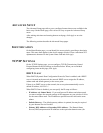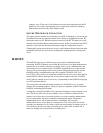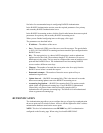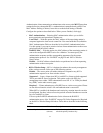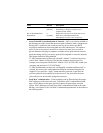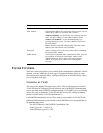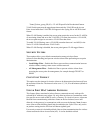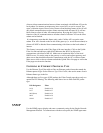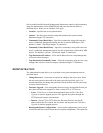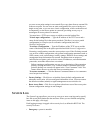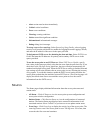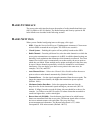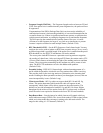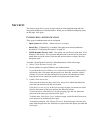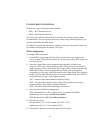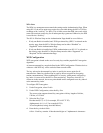36
first be enabled and the Network Management Station must submit a valid community
string for authentication. Select SNMP Enable and enter data into the fields as
described below. When you are finished, click Apply.
• Location—Specifies the access point location.
• Contact—Sets the system location string that describes the system location.
(Maximum length: 255 characters)
• Community Name (Read Only)—Specifies a community string with read-only
access. Authorized management stations are able to retrieve MIB objects. The
default is “public.” (Maximum length: 23 characters)
• Community Name (Read/Write)—Specifies a community string with read-write
access. Authorized management stations are able to both retrieve and modify MIB
objects. The default is “private.” (Maximum length: 23 characters)
• Trap Destination IP Address—Fill in the IP address box for a trap manager that
will receive these messages.
• Trap Destination Community Name—Fill in the community string box for a trap
manager that will receive these messages. (Maximum length: 23 characters)
ADMINISTRATION
The Administration page allows you to perform access point management tasks as
described below.
• Change Password—A password is required to configure the access point. Enter
the user name and new password in the spaces provided and click Apply. It is
recommended that you change the password from the default value (no password)
to ensure network security.
• Firmware Upgrade—You can upgrade firmware from a downloaded file that you
have placed on the local computer, or from a remote FTP or TFTP server.
• Local—Click Browse to locate the downloaded firmware file. Click Start
Upgrade to start the upgrade process. The upgrade takes place through the
HTTP protocol from the local machine.
• Remote—Select FTP or TFTP. Enter the firmware file name, the host IP
address where the file is stored, the user name, and the password. Click Start
Upgrade to start the upgrade process.
• Backup and Restore Configurations—Access point configurations can be saved
as data files and later used to restore the access point configuration. This option lets



